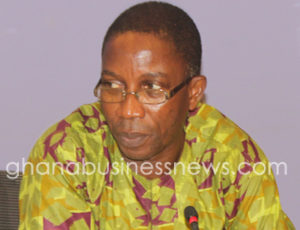Institutional gaps in mining must be addressed – TWN

Dr Yao Graham, the Coordinator of Third World Network (TWN) has reiterated the need for institutional gaps in the mining sector to be addressed.
He also urged the institutions designed to work towards the needs and aspirations of mining communities to take up their responsibilities seriously.
He said the Mining Legislation practice in Ghana was lagging behind the continental frameworks such as the reforms agenda of the African Mining Vision (AMV), embodied in the ECOWAS Mineral Development Policy and the ECOWAS directive on harmonisation.
Dr Graham made the call in Bolgatanga, in an interview with the Ghana News Agency, on the sidelines of a two- day workshop on Mining Policy and Practice and Rights of Mining Communities in Northern Ghana.
The workshop spearheaded by TWN in partnership with the Coalition of Social Movements (CSMM) and the Coalition of Action Group (CAG )in the Upper East Region, aimed at sharing experiences of mining communities in Northern Ghana, building knowledge on National and regional mining policies and their implications for communities.
It also provided avenues for stakeholders to network and share ideas on how best to address mining challenges.
The workshop was represented by artisanal small scale miners, advocacy organisations, women groups from mining communities in Gbaane in the Talensi District, Nabdam district, Zongoyire in Bawku West and Sirigu in the Kassena Nankana West District.
Others came from Chansa Kadema in the Builsa North Municipal, officials of the Environmental Protection Agency and the Minerals Commission.
Dr Graham said the gaps in the mineral regime, particularly in terms of procedures of involving communities affected by mining needed to be examined to help communities to take account of their views on decisions on whether to mine or not.
He said procedural rights gave communities rights over its influence and the people could make decisions to reject bad mining projects before they started.
“Involvement of communities throughout the life of a mine minimised incidence of conflict in the mining sector”, he said.
Highlighting on the recent anti-galamsey- operations in some parts of the country and how Small Scale Mining and seizure of licenses occurred, he said the people were not treated well and described it as institutional and political discrimination.
He said the many actions taken by various governments to stop the operations of small scale miners rather disrupted the functioning of large scale and legal mining operators.
He said his outfit was advocating that small scale miners be treated with the same attitude as the legal and large scale miners and indicated that militarized approach would not solve social problems of unemployment and the absence of livelihood opportunities.
He said there was chaos in terms of policy, practice and supervision of the artisanal small miners and hoped that by dialoguing with them and other stakeholders interested in proper long term solutions it would help the government to come out with a template and systematically implement it.
“To do that government must dissolve the Inter- Ministerial Committee on illegal mining because it has no legal status in the general mineral administration in the country and some of the revelations coming out shows it is inefficient”, Dr Graham said.
Speakers including; Dr Abdulai Darimani, of Local Government Studies (ILGS)and personnel of the Environmental Protection Agency (EPA) made presentations on regulating the environmental and social impact of mining and Mining and human rights issues
Source: GNA
